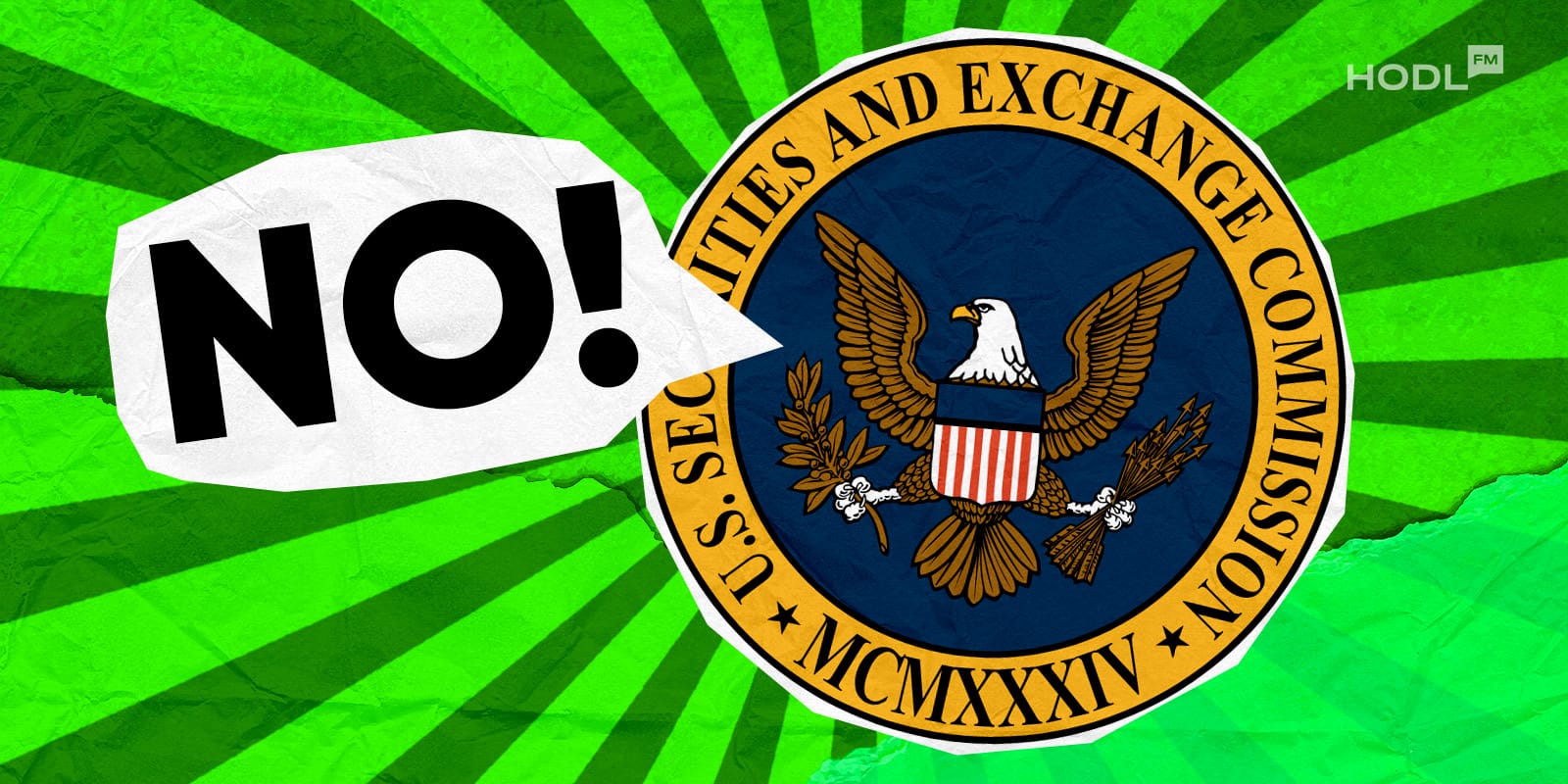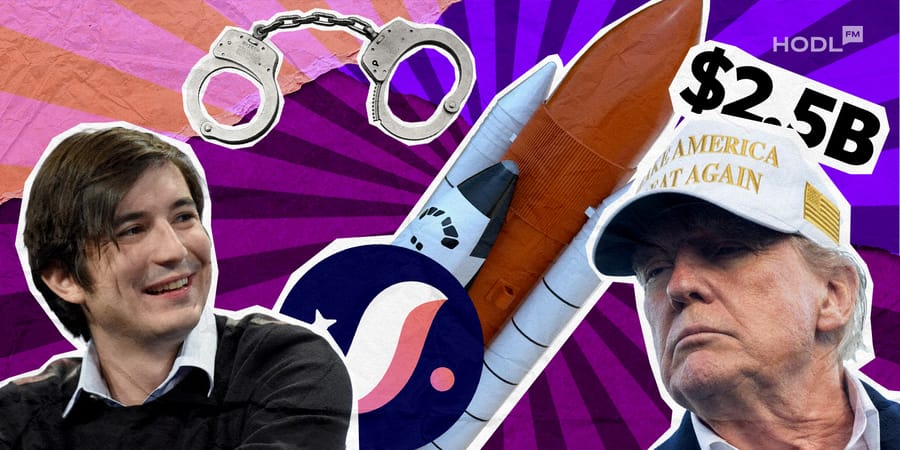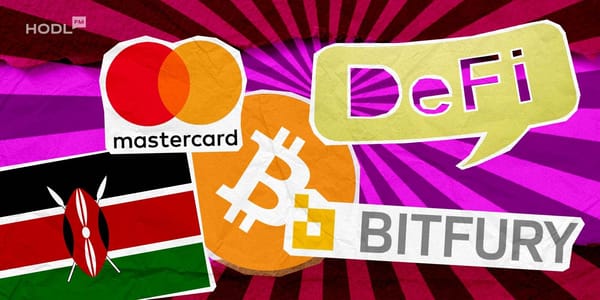Today, we’re bringing you our regular Friday summary of the top crypto stories. First, we’ll check out the winners and losers from this week.
Top Gainers and Losers of the Week
- SPX6900 (SPX) jumped 29.32% this week, bringing its price to $1.16.
- Zcash (ZEC) gained 24.71%, now trading at $55.35.
- Quant (QNT) rose 16.48% over the week, reaching $115.64.
- OFFICIAL TRUMP (TRUMP) dropped 21.35% to $12.44, leading the weekly losers.
- Fartcoin (FARTCOIN) fell 16.92%, now priced at $1.27.
- Sonic (formerly Fantom) (S) declined 15.70%, ending the week at $0.4463.
Crypto Horror in Manhattan as Italian Entrepreneur Tortured for Bitcoin
Italian businessman Michael Carturan, who is worth more than 30 million dollars, was abducted from a townhouse in Manhattan’s SoHo district. He was lured to the US by his former business partner, John Woeltz, a crypto millionaire from Kentucky. Officials say Woeltz worked with William Duplessie, a Swiss associate, to arrange the abduction. Beatrice Folchi, a young Italian woman, is part of the case as well. She may have helped lead the victim into the trap.
Сarturan's documents were confiscated, his phone was taken away, he was tied up, locked in a basement, and tortured for 17 days. They wanted the password to his Bitcoin wallet from him. They hit him, shocked him with electricity, cut his skin, and gave him drugs. He was threatened with a chainsaw, a taser, and threatened to be thrown from the fifth floor. Photos taken on Polaroids showed the abuse and could have been used to threaten his family.
He escaped by pretending to cooperate and ran barefoot into the street, where he found a police officer. Woeltz was brought into custody at the scene. Afterward, Duplessie turned himself in to the authorities. They are both being held and may be sentenced to life in prison. Trials will take place in the summer.
This is not the only time this has happened. In January, Ledger founder David Balland was kidnapped in France and had his finger cut off when he did not meet a crypto ransom demand. Last month, the father of a crypto founder was kidnapped in Paris and also suffered torture. Both people who had been held hostage were freed.
These stories are a stark warning for the crypto community. Real-life violence is replacing online threats, and the biggest loss may no longer be your wallet but your life. Sadly, writing your seed phrase on paper won’t always protect you…
USDC Comes to Bitcoin? Starknet Says “Why Not” with Asset Runes
Starknet, an Ethereum Layer 2 scaling solution powered by zero-knowledge rollups (yes, the magic math stuff), just introduced a new way to bring tokens into the Bitcoin ecosystem. The first brave asset making the leap is none other than USDC — the stablecoin that’s seen it all, and now apparently wants to live on Bitcoin too.
1/ Introducing a brand new offering for Bitcoiners: Asset Runes.
— Starknet 🐺🐱 (@Starknet) May 27, 2025
Bitcoin-native assets giving you 1:1 exposure to real tokens, starting with USDC, and soon expanding to more tokens, NFTs, and RWAs.
Minted natively on Bitcoin, redeemable 1:1 on Starknet, with full reserves 🧵 pic.twitter.com/GGyq8cY05f
The mechanism is simple and reliable. A user locks their USDC on Starknet, and in return, the system issues an equivalent amount of USDC-Rune on the Bitcoin network at a 1:1 ratio. Each token is fully backed and can be redeemed at any time for the original asset. This model is made possible by the new Bitcoin Runes protocol, developed by Casey Rodarmor, the creator of Ordinals.
The Starknet–Bitcoin bridge runs without centralized intermediaries. Instead, it relies on a group of independent participants, including the Xverse wallet and UTXO Management, to ensure trust-minimized operations.
Looking ahead, Starknet plans to support additional assets like ETH, USDT, STRK, and even real-world assets (RWAs), because why stop at stablecoins when you can tokenize reality, hm?
The news has already stirred excitement in the crypto community.
USDC is now live on the Runes Protocol!!!!!! https://t.co/T6RZ4J0rhK
— Leonidas 🧡 $DOG (@LeonidasNFT) May 27, 2025
While DeFi enthusiasts are calling it the dawn of a new era for Bitcoin, skeptics point to familiar concerns: bridge security, network congestion, and potential regulatory scrutiny. Still, one thing is clear. Bitcoin is no longer just “digital gold.” It’s becoming the foundation for a new generation of financial services.
Trump Media Throws $2.5 Billion Into Bitcoin. What Could Possibly Go Wrong?
Donald Trump's media company, Trump Media & Technology Group, has officially confirmed a bold new strategy: dropping a cool $2.5 billion into a corporate Bitcoin reserve.
The funds come from a private sale of stocks and zero-coupon convertible notes. The acquired BTC will be custodied by Anchorage Digital and Crypto.com. At current prices, that’s about 22,500 Bitcoins, enough to make Trump Media the third-largest corporate BTC holder in the world, right behind MicroStrategy and Marathon Digital.
The company calls Bitcoin “the pinnacle of financial freedom” and plans to integrate it into its platforms, Truth Social and Truth+, for subscriptions and possibly a future utility token.
Markets, however, were less enthusiastic. TMTG stock dropped 8 to 12 percent following the announcement. Some analysts question whether this crypto pivot solves any of the company’s real business problems. The crypto crowd, meanwhile, is calling it a “historic moment.”
Still, the move fits neatly into Trump’s broader vision to MAKE AMERICA GREAT AGAIN, now with more Bitcoin (and hopefully no subpoenas).
AI-Powered One-Man Companies? Robinhood CEO Thinks So (and He’s Not Alone)
At Bitcoin 2025 in Las Vegas, Vlad Tenev, CEO of Robinhood, made a prediction: AI is paving the way for companies run by a single person, much like how Satoshi Nakamoto launched Bitcoin solo. According to Tenev, AI is pushing the limits of what one person can achieve in business, allowing them to create massive value with minimal resources.
“I think you’ll have more single-person companies,” Tenev said, adding that these businesses will likely be tokenized and traded on blockchains, just like other assets. “So you’ll be able to essentially invest in a person or the economic activities of a project that is run by a single person,” he explained.
However, this idea isn’t unique to Tenev. Sam Altman, CEO of OpenAI, echoed a similar vision earlier this year. He predicted that we might soon see a “one-person unicorn”, a billion-dollar company founded and operated by just one person, thanks to AI’s capabilities. “This was unimaginable before,” Altman noted.
From the blockchain world, Vitalik Buterin, Ethereum’s co-founder, emphasized the importance of decentralized AI. He argued that collaboration between humans and AI, rather than competition, will drive the future of innovation. Buterin warned against the concentration of AI power and advocated for open, decentralized approaches.
And, of course, Elon Musk has been vocal, if not alarmist, about AI’s potential risks. While he’s more cautious than optimistic, his concerns about AI’s existential threats fuel the broader conversation about whether it’s a blessing or a curse. Musk has called AI “THE BIGGEST EXISTENTIAL THREAT” to humanity and stressed the need for regulation and safeguards.
In essence, Tenev’s prediction of “AI-powered one-person companies” taps into a wider conversation already unfolding across the whole industry. Whether it’s the solo-entrepreneur dream or the cautionary tales of AI’s power, one thing is clear: the future of business is about to get a whole lot more… automated.
Of course, this vision might become our reality one day. But for now, it’s clear that AI can’t function completely on its own. It still needs humans in the loop. The debate continues, though, and who knows what the future might bring?

Disclaimer: All materials on this site are for informational purposes only. None of the material should be interpreted as investment advice. Please note that despite the nature of much of the material created and hosted on this website, HODL FM is not a financial reference resource, and the opinions of authors and other contributors are their own and should not be taken as financial advice. If you require advice. HODL FM strongly recommends contacting a qualified industry professional.





